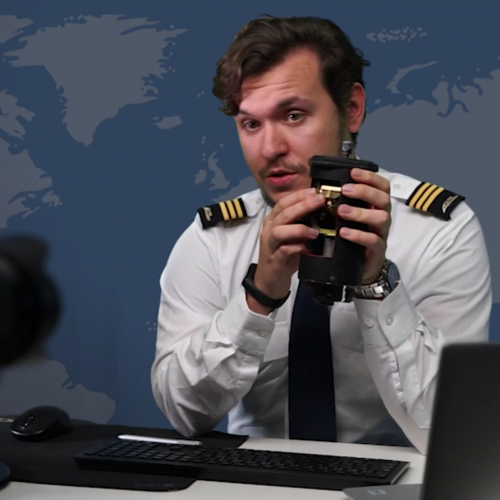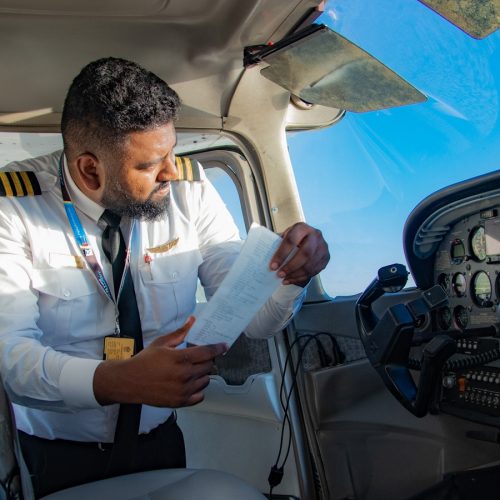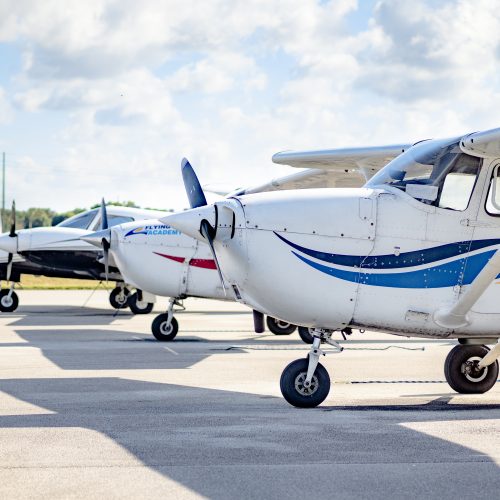HOTLINE
Corona, LA
+1 (951) 272-3942
Van Nuys, LA
+1 (747) 877-2946
Corona, LA
+1 (951) 272-3942
Van Nuys, LA
+1 (747) 877-2946

Private Pilot License – EASA PPL (A) is a qualification that allows the holder to fly on single engine piston (SEP) aircraft in visual meteorological conditions (VMC) as pilot-in-command (PIC) or co-pilot on aircraft in noncommercial operations without remuneration. PPL (A) training is the first step towards becoming a professional pilot and designed for applicants with 0 flight experience. Once you complete your EASA PPL(A) training, you will get your Private Pilot License and SEP (Single Engine Piston) land qualification.

The theoretical preparation consists of 100 hours, out of which at least 35 hours will be with an instructor in a classroom. The ground training is divided into two modules – preparation for the PPL(A) exams and theoretical preparation for flight training.
At the end of the course, you will have to demonstrate a sufficient level of theoretical knowledge, which will be tested on a set of 9 written tests from the theoretical subjects. To pass the PPL(A) theoretical examination you need to achieve a score of at least 75% from each subject (Meteorology, Navigation, Communications, Aircraft General Knowledge, Principles of Flight, Air Law, Flight Performance and Planning, Human Performance and Limitations, Operational Procedures). The PPL(A) theoretical examination is conducted at the premises of Civil Aviation Authority of the Czech Republic in Prague.
Flight training is performed on a single engine piston (SEP) aircraft according to visual flight rules (VFR).
At the end of the flight training, you will have at least 45 hours total time.
10 hours of solo flights:
Solo hours include local solo flights and solo navigation cross-country flights under supervision of the flight instructor on the ground
Dual hours are divided into 3 stages and cover basic airplane handling, take-offs and landings, advanced maneuvers, emergency procedures, simulated instrument flying and navigation flying.
Once you pass the theoretical exams at the CAA and complete your practical training, you will need to prove your practical skills. The practical exam is performed under the supervision of a CAA-authorized examiner.
You will need to demonstrate your ability to:

Must be Proficient in English, Mathematics and Physics